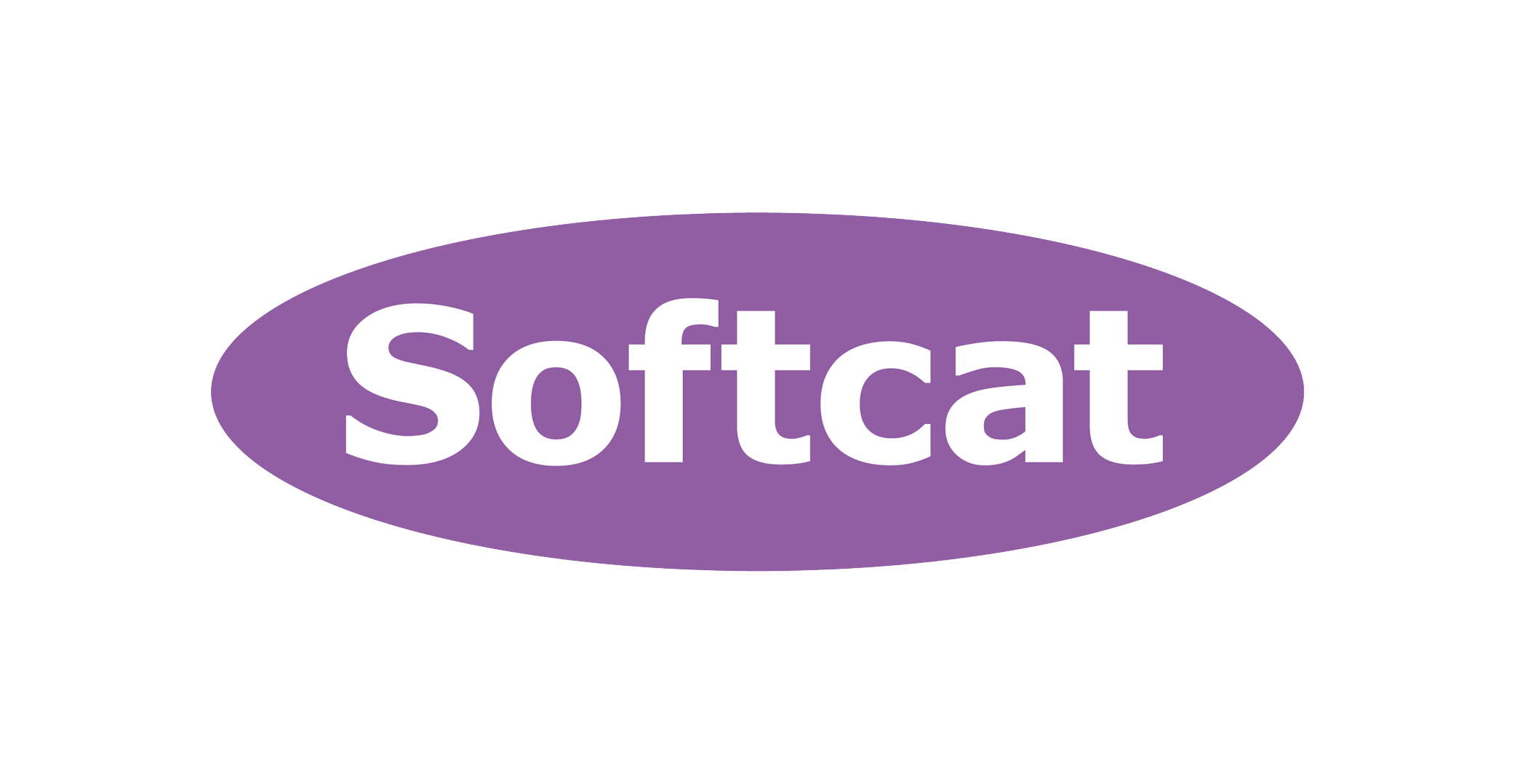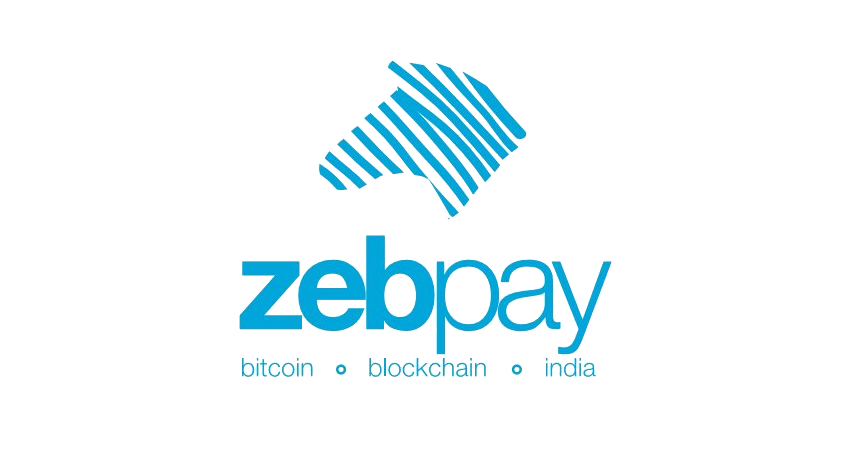Published
- 01:00 am

66% of finance organisations are prioritising Digital Workspace solutions in the year ahead –
- 14% now say sustainability is key to their IT decision making –
A new report from Softcat offers an exclusive snapshot of the finance IT landscape and what technologies organisations are prioritising in the year ahead.
The findings are based on the views of nearly 1,250 organisations in the UK and Ireland, across 23 industries including finance.
Looking at a sector level, the report reveals 66% of finance organisations are now prioritising Digital Workspace solutions above all other technology areas.
The banking and finance sector is under increasing pressure to deliver intuitive, accessible and mobile-friendly consumer experiences, while continuing to offer important face-to-face services.
The sector has also responded to changing work styles and COVID-19 restrictions by introducing greater flexibility and remote working. For staff to work effectively, from anywhere, they need a frictionless, connected environment where user experience and security are central. Something Digital Workspace technologies can provide.
Digital Workspace solutions put people first and technology second. They enable true collaboration and deliver a great user experience by securely connecting people, applications, data and devices together, helping employees to do their job seamlessly – wherever they are.
Cyber Security is the second most cited technology investment area for the next year, with 64% of finance organisations saying it’s an important part of their IT strategy.
Today’s financial services are entirely dependent on computer systems, making it a lucrative target for cybercriminals. Data security is a major issue for the financial sector, which plays a key role in the economy. A security incident in a banking institution can have consequences on the day-to-day operations of an entire country, or even an entire region of the world.
Hybrid Infrastructure, comprising Datacentre and Cloud, Public Cloud and Managed Infrastructure, is ranked as the third most important IT priority within finance, according to the study with 47% of respondents citing it.
The bank of the future will look very different from today. Faced with changing consumer expectations, emerging technologies, security risks and alternative business models, banks need to start putting strategies in place now to help them prepare for this future. And the shift to cloud will underpin future success.
Importantly, organisations were also able to rank sustainability as a focus for the first time. And 14% of those in the finance sector (compared to a 10% cross-sector average) cited sustainability as an important factor in their IT strategy for the coming year, signalling a shift towards greener and more ethically conscious decision making.
Technology has a vital role to play in supporting organisations in meeting their sustainability goals, to ensure compliance with tightening legislation and help the global community meet science-backed climate targets.
Richard Wyn Griffith, Managing Director of Softcat commented on the findings:
“Over the past 18 months or so, the financial sector has been heavily challenged; working hard to limit the impact on business-as-usual or respond to unprecedented surges and pivots in demand.
“People, empowered by technology, have made navigating this uncertain and disruptive period possible. And this will only continue as we learn to live and thrive with new ways of working.”
Related News
- 01:00 am

- Bite Investments is launching its first ever commingled private markets product to meet the needs of high-net-worth investors and wealth managers
- The fund is a one-stop solution offering a diversified strategy mix to support wider portfolio objectives
- By expanding access to private markets, Bite solves an acute problem in wealth management
Bite Investments[i], a digital asset manager and fintech company specialised in alternative investments, launches the Bite Private Markets Portfolio, offering investors the opportunity to access a diversified allocation to alternatives with one investment.
From this week, investors can get diversified exposure across investments strategies, geographies, and fund managers in one ticket. The Bite Private Markets Portfolio will allocate capital into 8-10 underlying top-tier funds, assessed and selected by Bite Investments’ expert investment team. The minimum investment size is $100,000 and the core sectors are: Healthcare, Information Technology, Software, Business Services, Financial Services, Consumer, and Industrials.
“The promise of alternatives is excess of returns in comparison to risk. For far too long, individual investors have not been able to capitalise on this. Through technology, we are now pleased to offer them exceptional access to the best parts of private markets via a single ticket investment”, says Henry Talbot-Ponsonby, Co-Founder and President at Bite Investments.
Companies are staying private longer
There has been a profound change in the way companies grow and raise money, by staying private. Their eventual success may never actually be accessible via public markets. This means investors who ignore private markets now, may be limiting their potential for the future.
Not only has there been a growth in in the number of private firms, but since 2000, buyout asset value has grown 3.5 faster than public equity market capitalisation, according to Bain’s Global Private Equity Report 2020.
“Historically, individual investors have neither had access to top fund managers, nor have they been able to reap the benefits and value created as companies stay private for longer. Tomorrow’s unicorns may never even go public”, says Anna Barath, Investment Director at Bite Investments.
Technology removing barriers for growth investing
Private equity has been one of the best performing asset classes globally over the last 3 decades, according to McKinsey’s Global Private Markets Review 2020. However, due to a combination of high fees, high minimum investment amounts, and lack of access to top funds, wealth managers, RIAs and IFAs have not been able to access this investment strategy. As a result, high-net-worth investors are under-allocated as compared to other investors.
“By making alternatives more accessible to our clients, we are helping them diversify instantly. Using technology, we enable individual investors to access, unlock and invest bite-sized amounts into some of the most exciting private markets strategies out there”, says Henry Talbot-Ponsonby, Co-Founder and President at Bite Investments.
The growing market for private equity
Estimates predict that private investment markets will grow. A Deloitte Insights article forecasts global PE assets under management to reach almost US$6trillion in the next four years and it has shown great resilience to recent downturns, including the Global Financial Crisis of 2007-09 and the Covid-19 pandemic of 2020-21, as shown in McKinsey’s Global Private Markets Review 2021.
“With the public markets not generating alpha to satisfying levels and the current low-interest rate environment, investors are turning to the private markets. Our new Private Markets Portfolio is suitable for clients looking for long term capital appreciation with alpha outperformance potential provided by co-investments and venture capital strategies”, says Anna Barath, Investment Director at Bite Investments.
A seasoned team
All funds are assessed by Bite’s investment committee before being offered to investors. The selection basis includes, but is not limited to, underlying fund market opportunity, team, track record, fund terms and fit with Bite’s investor base.
The investment team has advised on over $13 billion of capital raises and conducted in-depth due diligence on over 100 funds and co-investments. Fund and direct commitments made across private equity, private credit, and real assets are in excess of $4.2 billion total.
[1] Bite Investments (Cayman) Ltd, and its affiliates including Bite Investments (UK) Ltd, and Bite Asset Management (together, "Bite Investments" or "Bite")
Related News
- 06:00 am

NFT’s are a key player for consumer brands to connect and engage with their customers in a new wave of blockchain tactics
· The evolution of NFTs is opening a varied yet practical launch pad for many younger and non-traditional audience demographics to join global blockchain revolutions and create a new future across multiple gaming platforms
· No longer will big name developers dominate the marketplace; decentralized blockchain governance gives even boutique developers the chance to grow their audiences and engagement
Rcently, the use of NFTs (Non-Fungible Tokens) in gaming has come under some scrutiny, with game stores such as Epic permitting games that use NFTs or Cryptocurrencies, whilst not necessarily directly supporting the cause themselves. Regardless of stance, the potential pot of gold at the end of the NFT gaming rainbow is huge; after several months of billions of dollars in trading, the NFT space generated over $4,200,000,000 in October 2021.One of HeliconNFTs core aims was to become an educator in the NFT gaming space, taking valuable advice from developer studios and seasoned gaming communities alike to avoid anyone potentially being misled regarding any false dangers of NFTs, and digging to the true potential value to the gaming industry, including heightened security and direct community engagement.
By understanding the flexibility of NFTs as a collective, the global gaming community may be able to build a true and open NFT trading platform where gamers, developers, and creators can trade their created, bought, and earned NFTs between each other, as well as mint their own from their online assets – from cosmetics to signed memorabilia. The true meaning of a decentralized culture and democratic platform is to be a tool which brings traditional games and NFTs into the same sphere and adds value to the industry at every level.
Minting A Marketplace
At the core of creating NFT’s is the process of “minting”, turning your digital files into unique tradable assets on the blockchain, typically on Ethereum. Advance warning, you will need first to have a crypto exchange setup to pay for the one-time setup fee for minting an asset. Practically any digital asset can be “minted” – effectively uploaded to the blockchain and verified as a unique asset belonging to that user. Once minted, NFTs can then be traded or sold like any other token on the blockchain. The current, most popular use for NFTs is either the exchange of (already established) high value items, or assets being bought with the hopes of being sold for more later.
Tom Palmer, HeliconNFTs CPO made it a point that: "We are bridging the gap between centralized games and decentralized NFTs. We are giving power to communities to mint game items as NFTs by themselves, and we will implement centralised game functions through blockchain technologies, creating a user-friendly experience."
For players and content creators (modders, streamers and UGC creators for example), you can mint your own NFTs whilst enjoying smart contract security in your purchases, allowing you to monetise your time and effort in-game. For developers, you can diversify your revenue streams, mint your own potential high-value NFTs, and reach larger audiences more easily. For platforms and publishers, you can not only diversify your revenue streams, but also have another source of user acquisition tools at your disposal. NFTs will be the future of the gaming space, so making sure they’re fair and secure is key for the industry.
The Right Tools For the Job
The question on many peoples lips is, are the current tools of the gaming industry fit for purpose for this model? From the App Store wars on platform percentages to Steam key scams and Ad Frauds, the power struggle and capability of bad actors to come into play seems relatively high. The market need appears to be a new set of tools which allows the gaming industry to collaborate – one that allows true ownership and verification of games and assets, so that the future of gaming can take hold, and it is on this premise that HeliconNFT was first designed. There are hundreds of sites, bad actors disappearing without a trace, and crypto’s being intrinsically tied to platforms and games.
Through use of smart contracts, NFT marketplaces and gaming stores such as HeliconNFT with their activity carried out on the blockchain are able to fully ensure when two parties agree on a deal, it’s automatically carried out. Therefore the new tools of online governance would seem to favour blockchain technology as the conduit for a new gaming metaverse.
The Game is Always Changing in the Middle East
The number of Middle East gamers as of 2021 is estimated at a little over 100 million, which in a multi-billion-dollar industry with cult followings and a massive internet penetration in the MENA region means gaming in the GCC is as certain a growth area as any investment can be. James Magee CEO HeliconNFT is banking on MENA being a big new player in the future of gaming developers. “With $3 Billion invested from the Middle East in game developers and publishers in the last 12 months this really is the place to be for the Gaming industry in 2021 and beyond, we are offering a showcase for any developer/publisher who would like to present their proposition to investors and learn new ways to create new revenues for their games', he said.
“At Helicon we’re gamers at our core, having launched numerous gaming festivals and esports tournaments across the world for 100s of millions of gamers. Best of all, we’re backed by blockchain experts, some of whom basically pioneered tokenisation and have been testing it for as many years as tokens have existed. The decision to launch HeliconNFT is many years of work on many continents, with the very best people. We’re quite literally trying to change the game.”, he added.
One development studio that is excited about what the future of NFTs could mean for gaming if utilised correctly, and the potential scope for growth in the MENA region is Bad Fox Studios. Bad Fox has partnered in the early stages with HeliconNFT to help shape the platform, and focus the direction of how a fairer economy could develop. Bad Fox comprises a diverse cross-section of gamers and are currently working on multiple IPs. Understanding how NFTs can benefit both developers and gamers is essential to be portrayed correctly.
“It’s about being secure, open, and honest and respecting the true value of trading and exchanging merchandise currently being sold by developers and bought by gamers, plus giving true value to the hard work which often goes unrewarded by the vast modding community that generates so much for gamers. Hopefully NFT’s can make for a fairer economy for all, however we see the Middle East has incredible potential, being an early adopter of all things blockchain so early in the game” says Studio Head, Barry Hudson.
If you’d like to see more of what HeliconNFT has to offer yourself, visit Blockchain World 15-17 December, at ADNEC in Abu Dhabi, to meet the team and maybe even play a game or two.
Related News
- 02:00 am

Form3, a leading cloud-native payment technology provider and Barclays have announced the addition of a SEPA Credit Transfer (SCT) service to their combined directly connected access solution.
The partnership, already live with SEPA Instant, now offers full reachability for SEPA payment transactions through a connectivity service available to Barclays’ customers who are regulated payment service providers.
This specialised cloud-native SEPA solution enables scheme connectivity for both SEPA Instant and SCT.
Barclays’ fintech customers can now benefit from direct technical access to the SEPA payment schemes, with connectivity enabled by the fully managed Form3 technical service accessed through a single API. Barclays will support in its role as a dedicated liquidity service provider enabling settlement with the schemes on the fintech’s behalf. For fintechs, this direct technical connectivity was previously only an option for credit institutions holding their own liquidity.
“Form3 has been working with Barclays since day one and together we are committed to making payments faster, easier and more cost effective for the global financial community, including non-banks. We are delighted to expand our partnership with Barclays to allow the fintech community and financial institutions more broadly to access the full range of SEPA services, thus enabling them to reduce costs and provide a much-improved experience to their end customers.”
Michael Mueller, CEO Form3
Our continued close collaboration with Form3 has allowed us to add a SEPA Credit transfer service alongside our SEPA Instant proposition which we jointly launched in 2020. This is another key step in enabling Payment Service Providers to offer comprehensive pan-European payment and receipt solutions to their underlying customers.
Martin Runow, Global Head of Payments, FX and Digital, Barclays Corporate Banking
Related News
- 04:00 am

The Financial Conduct Authority (FCA) regulatory body has selected the Aiimi Insight Engine to deliver its new enterprise search and discovery solution.
Milton-Keynes based data and AI specialist Aiimi won the three-year, £1.3m contract for its proprietary Aiimi Insight Engine following an extensive evaluation process and eight-week Alpha testing phase.
How will the Aiimi Insight Engine help the FCA?
The new platform will help the FCA workforce gain even greater insights from its diverse datasets. By interconnecting valuable information spread across different systems, FCA users will now be able to conduct powerful rich context searches across assorted data formats held in diverse locations, both internally and externally.
User-friendly search results can then be easily visualised by data and non-data specialists alike to support collaboration among colleagues and teams within the FCA. This will make clear the true value of all the information and data readily available to the FCA.
Looking to the future, in addition to delivering new insights to users through cognitive search, the Aiimi Insight Engine has the capacity to bring enhanced intelligence and control to operations at the FCA. The platform’s advanced AI and machine learning capabilities enable organisations like the FCA to easily find and be alerted to risks – such as UK firms showing concerning indicators – before recording and learning from these findings using data training models.
Crucially for the FCA, the Aiimi Insight Engine also offers a secure solution to support the authority’s own information security access controls. This will ensure that FCA users see only what they are authorised to see – and that all search results inherit the security profile of their respective source systems. Likewise, the platform’s ability to track provenance and facilitate evidence-based decision making will help the FCA to prove diligence in the face of external audits.
During the three-year contract, the Aiimi Insight Engine software will be incorporated into the FCA Cloud, so it can integrate with the authority’s enterprise data platform and be fully configured to meet stringent FCA requirements.
Aiimi will also transition to offering platform support and services to the FCA. This move will help the FCA to fully develop its information capabilities and management strategy to become a more data driven organisation.
What is the future for insight engines?
Globally, the insight engine market is predicted to reach a staggering value of $4.14bn by 2026, as more organisations realise the true potential of AI-powered search, discovery, and insight applications.
Aiimi CEO Steve Salvin explains: “Organisations are looking for new, better ways to become data driven and take control of their information. Insight engines offer a powerful solution to the challenge of discovering relevant, interconnected data and getting instant actionable insights precisely at the moment you need them. There’s huge potential in every organisation’s information, and an insight engine unlocks this.
According to global research and advisory company Gartner, insight engine technology “combines search capabilities with artificial intelligence to deliver actionable insights derived from the full spectrum of content and data sourced within and external to an enterprise”.
Related News
- 03:00 am

Asia’s leading e-commerce financing platform launches merchant financing securitization facility with Citi, first deal of its kind in Asia |
Asia's leading financial technology platform Qupital today announced it has raised US$150 million in a combination of Series B equity funding and a receivables-backed securitization facility. The equity funding will reinforce Qupital's ambitions to scale its cross-border e-commerce lending business into international markets and further strengthen its technological capabilities, whilst the facility will provide a lower cost of funding for Qupital to offer exclusive products to its present and future clients.
Qupital's Co-Founder and President Andy Chan with Co-Founder and Chief Executive Officer Winston Wong (from left to right)
Qupital's ambition is to become the go-to digital financial institution for e-commerce sellers trading across the globe in the New Economy.The securitization facility entered with global investment bank Citi, supported by Integrated Alternative Credit Fund, marks the first e-commerce merchant financing securitization in Asia. This coincides with the closing of Qupital's Series B round, led by the Greater Bay Area Homeland Development Fund (GBA Homeland), with additional capital injections from investors including the Innovation and Technology Venture Fund (ITVF) of the Hong Kong SAR Government, MindWorks Capital, Silverhorn and Alibaba Entrepreneurs Fund. Qupital harnesses the power of sales data to streamline credit underwriting for sellers on e-commerce platforms such as Amazon, eBay, Lazada and Shopee, offering a win-win solution to both sellers and investors. The platform empowers creditworthy merchants that are traditionally underserved in the commercial lending market, and hews out an alternative asset class with attractive yield opportunities for both professional and institutional investors. As of October 2021, Qupital has achieved over US$500 million in loan advancement to some 7,000 merchants onboarded on its digital platform, tracking an annualized gross merchandise value (GMV) of over US$3 billion. Series B round led by GBA Homeland Development Fund, joined by the ITVF of HKSAR Government On top of the Series B funding, Qupital's strategic placement within the GBA Homeland portfolio more importantly reflects the depth and breadth of its integration into the GBA ecosystem. As a global-scale alliance dedicated to promote the new economy in China's GBA, GBA Homeland's established network serves as a springboard for Qupital to augment local partnerships and on-the-ground knowledge to assist further expansion in the GBA and Greater China. With China cross-border e-commerce sustaining a 20% year-on-year growth, the rapid industry expansion renders extra confidence for Qupital to grow its customer base beyond its existing force which concentrates in Guangzhou and Shenzhen. UK-based Nordstar's e-commerce focused fund joins the round as a new investor. As a leading investment adviser focusing on international growth and scaling, Nordstar will lend its network to broaden Qupital's customer base in Western markets and share the team's expertise to expedite the company's global expansion. The majority of funds raised will be used to accelerate Qupital's core lending business to support e-commerce sellers. As part of its five-year plan, the company is set to tap into its abundant network and grow its "buy now, pay later" product model to build an all-encompassing marketplace tailored for B2B transactions. It will assign resources to enhance its R&D capabilities in terms of artificial intelligence, big-data technology and MLOps. The company also has plans to extend its footprint across mainland China, as well as international markets including Southeast Asia, North America and Europe. It expects to triple the size of its team by 2022 to support expansion needs. "This funding round reinstates the boundless synergy agglomerated in the region", said Winston Wong, Co-Founder and Chief Executive Officer of Qupital. "the GBA comprises multiple world-class manufacturing bases, where goods are produced and capital needs arise; this is where we step in as a solution to bridge the financing demand gap. It also reaffirms the unparalleled role of Hong Kong as an international financial hub – where innovations are met with opportunities to flourish. We believe Hong Kong will continue to play an indispensable role within the GBA as a financial powerhouse." "As we aspire to improve financial inclusion and increase global trade ultimately, we are committed to back SMEs that have limited access to capital. Being able to work with Citi on this credit facility has fueled our business with a stable pool of funds and improved cost of capital. It is the cornerstone for us to sharpen our product features, build exclusive relationships with clients and win over market share to gain even stronger foothold in the global market", said Andy Chan, Co-Founder and President of Qupital. "Our ambition is to become the go-to digital financial institution for e-commerce sellers trading across the globe in the New Economy."
|
Related News
- 04:00 am

Managed services partnership provides an end-to-end, cloud-enabled Payments as a Service (PaaS) offering for mid-sized banks in Germany, Belgium, the UK and Ireland
Finastra today announced its partnership with Hexaware Technologies (Hexaware) to provide managed services for Finastra’s payments solutions deployed in the cloud. The move helps Hexaware customers in Germany, Belgium, the UK and Ireland take ownership of their payment infrastructure. The partnership brings together the companies’ industry leading payments and integration experience, to provide mid-sized banks with an end-to-end Payments as a Service (PaaS) offering which helps them remain competitive while mitigating operational costs.
Chinmoy Banerjee, Corporate Vice President and Global Head - Banking, Hexaware said, “Finastra’s strong payments offering enables our vision to help banks modernize and extend their digital footprint, by bringing their data infrastructure and applications to the cloud in an extremely fast, cost predictable, secure and co-engineered manner. Payments is a key focus area for Hexaware over the next three to five years. Our aim is to increase our service’s footprint through enhanced product competencies and establishing synergistic fintech partnerships, like that we have with Finastra.”
Domestic and cross-border digital payments can be expensive and complicated in terms of managing risks, keeping up with innovation and high transaction costs. To address these challenges, Hexaware will become a Managed Service Provider (MSP) for Finastra’s payments solutions, managing the payment licenses and supporting implementation, hosting and maintenance services for its customers. With industry leading products and over two decades of solution integration experience, the two companies are well equipped to provide a PaaS offering which will help banks to de-risk payments transformation and control transaction costs associated with product ownership and dependency on payment processors. It will also help banks adapt quickly to innovation and regulatory changes with a trusted advisor.
Oren Marmur, SVP and General Manager, Payments, Finastra said, “Hexaware’s expertise and outstanding reputation has led them to experience industry-leading growth for the past three years. With deep subject matter expertise in payments, Finastra´s solution will support their vision to accelerate the digital transformation initiatives of their customers. The partnership was formed based on a shared goal to bring greater value for our banking customers, across payment product capabilities and technology services deployed in the cloud. We are delighted to collaborate with Hexaware to help selected banks across Europe offer digital payments.”
Related News
- 08:00 am

Almost a third (28%) of regulated firms in the UK claim that analysing hard copies of documents is the most reliable method for identifying fraud - according to new research by leading RegTech firm SmartSearch.
These surprising results come from a survey* of 500 regulated businesses in the financial services, legal and property sectors. The research also found 28% of respondents were not aware of digital verification methods.
These statistics are particularly concerning as there has been a spike in fraudulent documents recently as criminals attempt to obscure their identity. SmartSearch’s research found almost half (48%) of respondents had reported a rise in financial crime attempts in the past 12 months.
Fraudulent documents have become even more sophisticated recently, and John Dobson, CEO of SmartSearch explained those relying on manual methods are leaving themselves dangerously exposed.
He commented: “Criminals are laundering millions of pounds in the UK, and they are using the most sophisticated methods possible to attempt to deceive.
“Therefore, it’s imperative that regulated businesses use all the technology available to them to fight against the growing wave of fraud.
“It takes an expert to even know the signs to look for in a fraudulent document, and those that are involved in money laundering are using state-of-the-art technology to create incredibly realistic forgeries. Unfortunately, those we surveyed that believe they can spot a fake, are sadly mistaken.
“It is encouraging that the majority polled stated they would struggle to spot a forged document, however the gaps need to be plugged.
“Switching to electronic verification is the smart thing to do. When it comes to preventing money laundering, it is the only real defense.”
With just a name and address, date of birth is optional, electronic verification combines credit reference data, biometric facial recognition, and digital fraud checks as well as electoral roll data and other reliable public sources to establish identity.
By triple checking these different sources of information a unique ‘composite digital identity’ is produced. This digital identity is virtually impossible to fake. All this can be done online, with no need for in-person meetings, face coverings or hard copies of documents.
The findings from the survey are part of the SmartSearch Electronic Verification Uncovered campaign, which has launched following the unprecedented pressure on regulated businesses since the pandemic hit.
Due to the pandemic lockdowns carrying out processes such as Know Your Customer (KYC) checks, and due diligence required by anti-money laundering regulation, became increasingly difficult with the lack of face-to-face interactions.
Criminals looked to seize upon the lack of physical contact, using software to alter images of ID, and as a result, the Financial Conduct Authority endorsed the use of electronic verification.
With the UN estimating that £1.4 trillion is laundered globally every year, those looking to prevent money laundering should look to make the switch to electronic verification as soon as possible, to avoid falling foul of regulations.
For more information about anti-money laundering solutions in the UK, please visit www.smartsearch.com
Related News
- 08:00 am

~Raj to accelerate growth in India and global markets as Chief Operating Officer
ZebPay, India’s oldest and most trusted bitcoin and crypto asset exchange, today announced the appointment of Raj Karkara as its Chief Operating Officer (COO). Raj joined ZebPay as Chief Business Officer in September 2020 and, more recently, had been promoted to the role of Chief Marketing Officer. With this role change, in addition to Marketing, Raj will now directly oversee Product Management, Trade, OTC, Global Growth and Operations (Customer Service & Excellence).
Raj Karkara comes with over 15 years of experience in the financial services, fintech and e-commerce industries. Previously, he was the Co-Founder of KansoStrategy, a boutique strategy and consulting firm that works with crypto, e-commerce, payments and fintech clients globally. Prior to Kanso, Raj held various positions such as Senior Vice President of product, CRO and COO at tZERO (www.tzero.com), the global leader in digital securities. Prior to tZERO, Raj held the role of Vice President of Product management for financial services, loyalty and new business development at Overstock (www.overstock.com). Prior to Overstock, Raj held the role of Director, Global Product and Solutions at MasterCard (www.mastercard.com), where his responsibilities included prepaid strategy and mobile money.
With this new appointment, ZebPay further strengthens its leadership team to enhance market share in India as well as expand into new markets globally. Raj’s primary responsibility will be to develop actionable business strategies and plans that align with the company’s short-term and long-term objectives. He will work closely with ZebPay’s Co-CEO, Avinash Shekhar, in setting and driving organisational vision, operational strategy, performance management and hiring needs. Additionally, he will work towards translating the strategy into executable goals for performance and further growth of ZebPay.
On this announcement, Avinash Shekhar, Co-CEO, ZebPay, said, “Raj has strengthened ZebPay’s presence and business in the crypto ecosystem since he joined us over a year ago and I am glad to have him as ZebPay’s Chief Operating Officer. With his extensive expertise, ZebPay will see rapid growth and global expansion to achieve our vision of becoming become the #1 cryptocurrency exchange in India and subsequently, the world. We are building ZebPay as an all-encompassing crypto company that offers innovative solutions and products to a diverse set of investors, from retail to institutional. I am confident Raj will continue to play a pivotal role in helping ZebPay chart new paths of success and achieve the long-term vision to create a social enterprise with a blockchain-based mutualized structure.”
Raj Karkara, COO, ZebPay, said, “ZebPay has been innovating and launching new and industry-first products to address the needs of a diverse set of customers ever since its inception in 2014 and I am excited to lead ZebPay as it gears up for further expansion. Crypto is booming in India with vast untapped potential for solutions that will make us a global leader. ZebPay is well-positioned to play an integral part and I am looking forward to driving strategies and building on our foundation of product and customer excellence to be the leading crypto exchange in India and Globally.”
Related News
- 07:00 am

- New fund is second from Digital Horizon and builds on successful strategy of first fund, which invested in high-growth businesses including Oxygen and Monday.com, generating overall IRR of 40% for its investors.
- This second fund will follow the same multistage strategy and will invest in both early and late stage companies.
- Focus remains on fintech and SaaS products, but with Asian markets targeted as well as Europe and Israel.
Digital Horizon, the venture fund and venture builder investment company, today announces the launch of its second venture fund with a target volume of $200 million.
The first fund, which opened in 2019, is completing the investment stage and has so far returned 40% per annum to investors. Its portfolio contains more than 20 companies including Klarna, team management platform Monday.com, data streaming platform Ably, retail analytics platform Trax and InsureTech companies Cuvva and Obligo.
Digital Horizon’s new fund will retain the successful strategy of its first. This includes:
- A specific focus on the fintech and corporate software sectors. These are some of the fastest growing segments in venture capital. The volume of investments in fintech in Q1 2021 reached $98 billion, twice more than in the same period of 2020. Spending on corporate software, according to Gartner's forecast, in 2022 will grow by $70 billion in 2022 to $699 billion.
Digital Horizon has significant expertise in these sectors. The company has successfully invested in American, Israeli and European startups, and has also built technology businesses from scratch in Russia and the UK
- Unusually for venture capital funds, Digital Horizon will adopt a multi-stage approach and invest in companies at all stages of the startup cycle. This approach has generated high returns over a long period of time with the first fund.
- Digital Horizon is particularly focused on startups founded by passionate immigrant entrepreneurs with a clear vision and strategy. In 70% of Digital Horizon’s startup investments, the founders were building their business not in the country of origin.
“We are delighted to launch our second fund, following an oversubscribed first fund,” said Alan Vaksman, the Founder and Managing Partner of Digital Horizon. “In our first fund we moved away from the traditional venture approach and invested in companies at various stages from Round A to D. Investing in early stage startups can mean double-digit multiples, but this is “long” money, locked in for seven or more years. In later stage investments, the return on investment occurs in just one or two years, but growth slows to an average of 2-4x. A multi-stage fund provides high returns while enabling the investors shorter investment horizon and liquidity. Our new fund will adopt the same approach”.
“As an investment company which combines venture fund and venture builder teams, our team has a unique combination of investment and product building expertise. This allows us to comprehensively evaluate businesses that we are considering adding to the portfolio from both a financial and technical point of view, in a way that others cannot.
“We firmly believe in migratory talents and their abilities to build best-in-class solutions which drive economies forward”, adds Vaksman. “We are extremely proud of the success of our first fund and are confident that our investment strategy will be just as successful going forward.”











